[ad_1]
One of the most rewarding things you can do for the health of your garden and other plants on your property is it starting a compost pile.
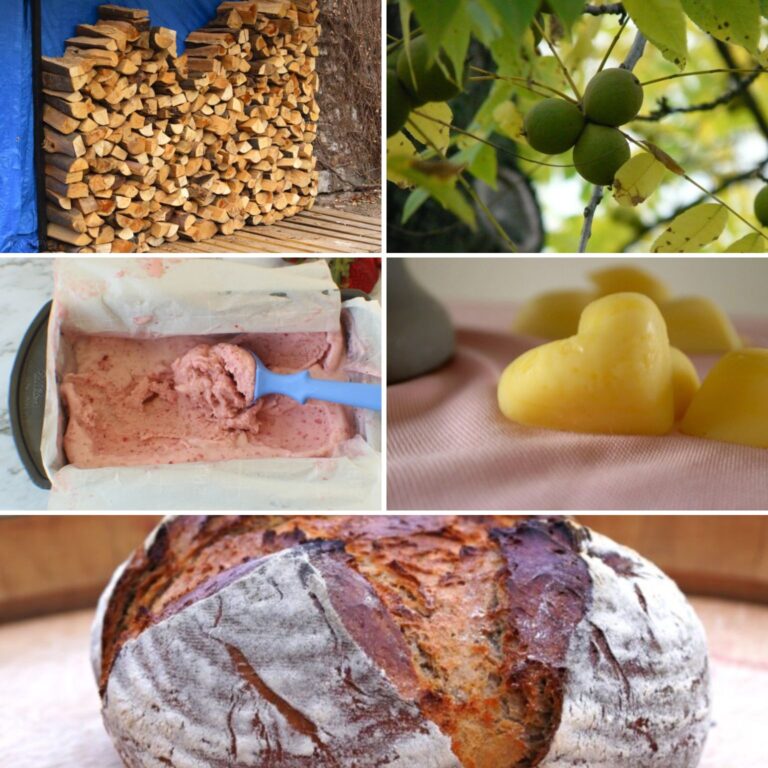
Using scraps from your kitchen and a few other choice materials, with a little bit of time and a little bit of effort, you’ll soon have rich, nutrient-packed compost that can supercharge the growth of your plants.
One of the best things about composting is just how varied the additions can be: all sorts of food, plant material, yard waste, and even things like cardboard and wood shavings can be valuable.
But not everything, including some things you’d expect, are actually good for your compost pile. In fact, they can do just the opposite!
Keep reading and I’ll tell you about the things you should never put in your compost pile…
1. Invasive Plant Matter
This is a tricky one, and one that I believe bears mentioning right up front.
When you are pulling out invasive plants from your garden or anywhere else on your property, it can be tempting to hack them up and toss them into your compost so you can get some actual use out of them. Avoid this temptation!
It is possible that the seeds or rhizomes of invasive plants can survive the intense heat generated by a compost pile to propagate themselves elsewhere.
That will make the problems they pose to the local environment worse, not better.
2. Diseased Plants
You can put dead and rotting plants in your compost pile, but you don’t want to put diseased or infested plants in it.
Whether your plant matter has been infected by blight, mold, fungus, or something else, you don’t want that stuff going into your compost because it might survive to infect other plants later.
Better safe than sorry, just throw these in the trash.
3. Insect-infested Plants/Food
Sort of like the previous post, if you have any plants that have been infested by insects like ants or termites, or any food products that have been taken over by weevils, mites, and other creepy crawlies, keep them out of your compost pile.
It’s too easy for these creatures to take up residence in the pile, and start disrupting the delicate ecosystem within. Whatever it is, if it’s infected, get rid of it in the garbage.
4. Grass Clippings (Maybe)
Grass clippings are nominally fine for your compost pile, but I’ve put them on this list because you’ve got to know exactly what the grass has been exposed to.
Grass that has been treated with fertilizers, weed preventatives or insecticides will easily contaminate your compost and potentially neutralize the reactions you are counting on for the process.
This can lead to your compost pile turning into a rotting mound of sludge instead!
5. Unknown Sawdust (Maybe)
Sawdust is fine for your compost pile in moderation, but you should never, ever add sawdust if you don’t know precisely what kind of wood it came from.
Any pressure-treated lumber or wood that has been stained, sealed, or processed with any other chemicals is bad news for your compost and will contaminate it.
At best, it won’t break down; at worst, it can upset the composting process.
6. Treated Lumber
As I alluded to above with the sawdust entry, any chemically-treated wood and related wood products are right out as far as your compost pile is concerned.
Treated lumber is one of the worst things, even if it is broken down into tiny chips or pieces.
Not only will the chemicals in the wood prevent it from decomposing in a timely fashion, but the residues and byproducts are harmful to animals and plants alike.
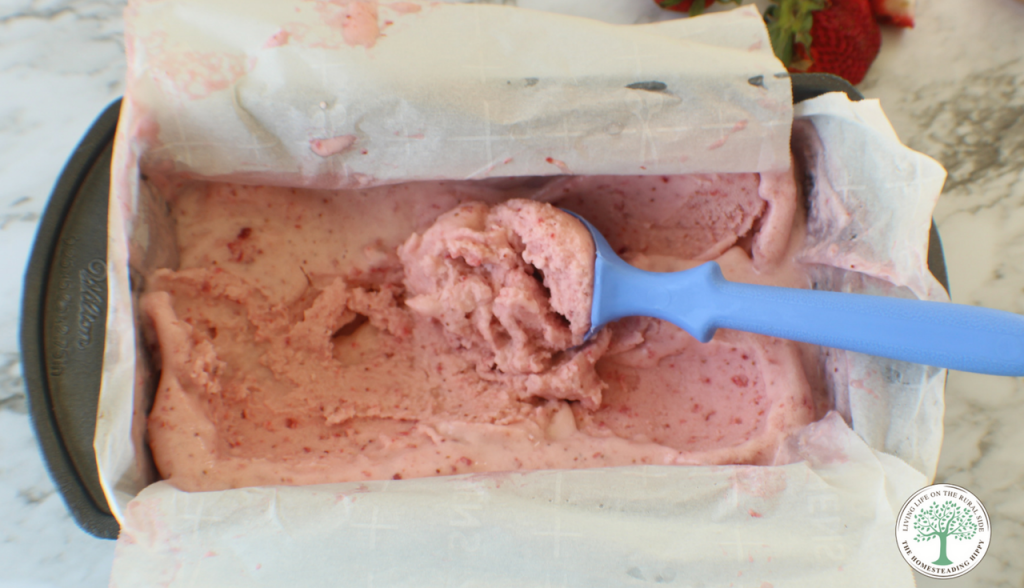
7. Dairy Products
Dairy products, be it milk, cheese, butter, yogurt, or something else should be left out of your compost pile.
Aside from fact they absolutely reek when they decay, the fats present in dairy products are very slow to break down, and they also have a way of coating other organic material and slowing the process of decomposition as well.
If you’ve got old dairy products, just throw them out.
8. Meat
Meat is very much like dairy for our purposes. It will stink horribly if not well covered, and it is also highly attractive to pests.
Yes, meat will break down and add beneficial resources to our compost pile, but the trade-off is typically just not worth the trouble.
9. Bones
Bones are similarly a bad idea for a compost pile. They’re incredibly hard and dense, and it takes ages for them to truly break down.
No matter how long you’ve left bones in your compost pile, you can expect to see them dangling around in there as you turn it throughout the long months.
This is unsanitary and unsightly, and aside from doing no good for your compost, they can also attract pests, particularly dogs, cats and raccoons.
10. Citrus Peels (Maybe)
This is another contentious inclusion, but I’m putting it here to get the word out. Putting citrus peels into your compost pile is okay in sharply limited amounts.
Problems arise when people add too many or add them too often, because they are highly acidic.
Every once in a while is okay, but don’t go overboard once you’ve peeled up a big group of oranges or grapefruit. When you push your compost pile pH into the acidic range, you’re going to have a major problem.
11. Produce Stickers
It might seem like a little thing, and it is, but don’t allow produce stickers on fruits and veggies to go into your compost pile.
These plasticized stickers don’t break down in a timely fashion and are basically just litter. Take the time to peel them off, even if the fruits you’re throwing in are spoiled.
12. Paper Food Packaging
Some folks assume that, just because their food comes in paper packaging, then it must be, for some reason, biodegradable. These two things are not synonymous.
Whatever kind of paper packaging your food comes in, whatever kind of food it is for that matter, if it does not explicitly say that it is compostable don’t put it in your compost pile.
13. Teas Bags
Tea is definitely a good addition to your compost pile but the little bags, or sachets, that the tea comes in are typically not unless the package says they are specifically compostable.
Note that biodegradable is not the same thing as compostable! A given material might be biodegradable on a time scale of a few decades.
That won’t do us a lick of good in our compost pile and it is essentially just litter, again. If your tea bags mention that they are compostable, you can add them, but otherwise just dump out the tea and trash the little bags.
14. Pet Poop
Animal manure can make for good fertilizer or potentially a good addition to a compost pile, but you generally only want to use the manure of herbivorous animals.
Carnivores, such as dogs and cats, will leave behind poop that’s invariably full of serious bacteria and often parasites, two things that can contaminate our compost file, and also make the resulting compost dangerous for people and animals.
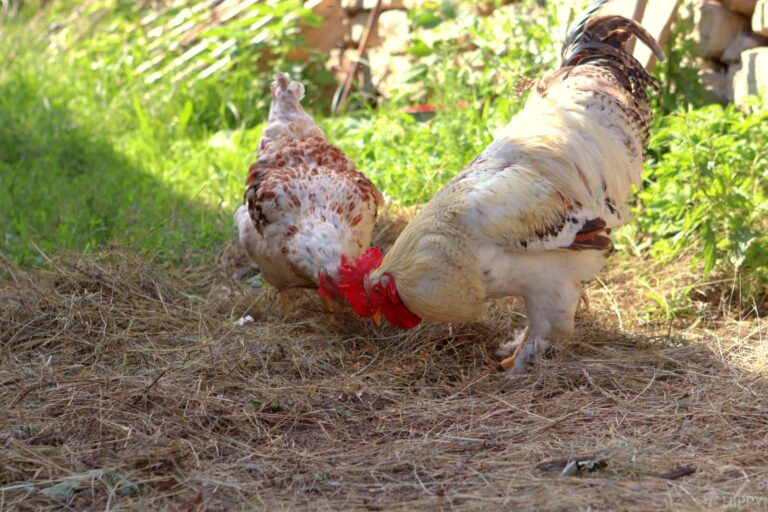
15. Hay
This is one that is easy to mix up. Straw, not hay, is okay for compost. Hay still has abundant seeds that are reasonably likely to survive the composting process, and they might actually be helped along by it.
This means that when you scatter your compost over your garden, in a planter or anywhere else, you’re probably going to have mysterious weeds start popping up; those will be from the hay you added! Whoops!
16. Human Waste
Using human waste as humanure is a viable strategy for fertilizing crops and gardens, but putting it in a compost pile is generally the wrong approach.
As with pet poop above, if you want to compost human waste, it will require a specialized procedure. Do not add your poop to your compost pile!
17. Coal Ash
Wood ash is okay for your compost pile when added sparingly and at the right time, but coal ash isn’t.
Coal ash will radically alter the pH balance of your compost pile, and can easily take a thriving and prosperous pile to a complete halt in no time.
Resist the temptation to gather this ash out of your charcoal grill or furnace.
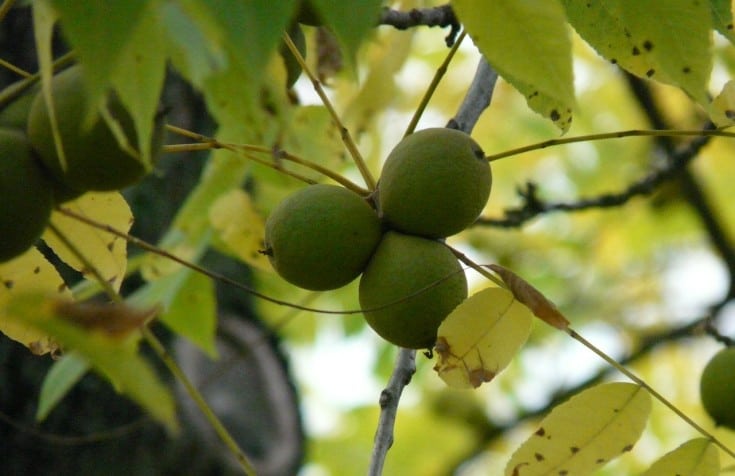
18. Walnuts
At first glance, walnuts might seem like a curious item to restrict from a compost pile, but there’s a really good reason for it.
Any plant material from a walnut tree, including the leaves and roots, contain a compound called juglone; it’s basically a natural herbicide for many other plants.
Although it doesn’t break down over time, it is highly likely that at least some of this compound will survive the composting process, and if you later on use your compost on decorative plants or fruits and veggies, it might stunt their growth or kill them.
19. Rice
What’s wrong with rice? On the surface, nothing, as it will break down and contribute to your compost pile but it has a nasty tendency to attract rodents which you don’t want hanging around, and large quantities can clump up and resist decomposition.
I generally avoid it, but if you want to add very small qualities and then cover it deeply, you can get away with it.
20. Weeds (With Seeds)
Weeds are another “gotcha” item; of course you can put most green plant matter in your compost pile, but if you do it with weeds, and even a single weed seed stays intact, you’ll soon have weeds cropping up where you want them the least.
I know some folks don’t mind or even worry about it, but I’ve had too many bad experiences. Avoid them!
21. Used Hygiene Products
I’ve observed a curious trend where some people think adding used hygiene products in the form of baby wipes or tampons to a compost pile is okay, or even beneficial. It is neither.
These things don’t break down, and none of them will do anything good for your compost pile. Just don’t do it.
22. Leather
Leather is technically a natural and organic material, but it has one that has been subjected to countless chemical processes and treatments to make it what it is.
It won’t break down quickly enough for our purposes, and even if it did it would thoroughly contaminate our compost pile. Leather is a no-go.
23. Cloth
Cloth, even the purest and most natural cloth, doesn’t break down quickly enough to be a worthwhile addition to a compost pile.
It can also actually slow down the decomposition of other material in the pile by smothering it and preventing oxygen and microorganisms from reaching them.
No matter what it is, keep cloth out of your compost.
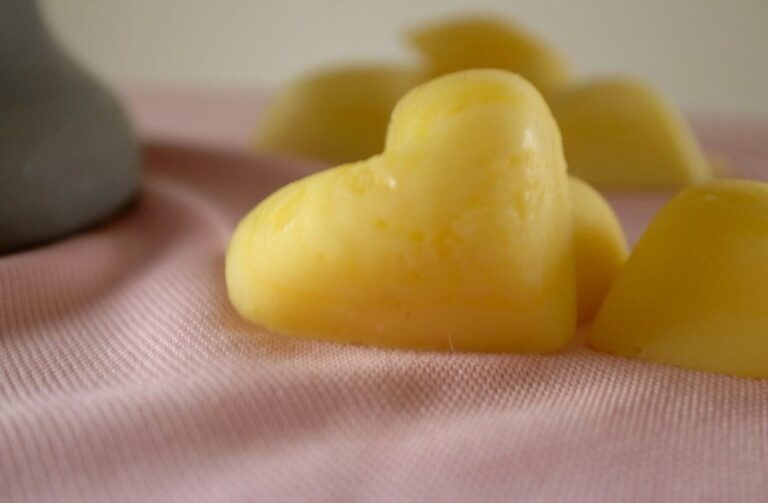
24. Wax
Some waxes are all-natural, like beeswax, and would seem to be a reasonable (if not great) inclusion for a compost pile.
But even these natural waxes take a long time to break down, and can interfere with the processes that must occur for us to get that wonderful garden gold.
Don’t even get me started on paraffin and other synthetic waxes: these petroleum products never belong in a compost pile.
25. Lint
Lint, from your dryer or from your vacuum, doesn’t go in a compost pile. It’s a combination mostly of dust and tiny scraps of fiber and, even if it was somehow totally organic, doesn’t add any meaningful material.
I don’t know how this got started or who first recommended it, but I’ve seen it before. Don’t waste your time!
26. Latex
Latex is another material with a natural origin, but one that’s been through too many processes to be called truly natural anymore.
Even so it takes way too long to decompose into its constituent components. If you toss some latex gloves near the beginning of the year, they are still going to be there well after the end of the year, I promise.
27. Cigarettes
Another Trojan horse for your compost pile is cigarettes. It’s just a paper wrapper with tobacco leaves inside, what’s the harm?
Well, considering how chemical-soaked and processed cigarettes are, they ultimately won’t do anything good for your compost.
There’s no telling what insidious effects these things will have on your compost so don’t throw old cigarettes or butts in there.
28. Weatherized Cardboard
Cardboard is okay for your compost pile in limited amounts, but weatherized cardboard isn’t. Don’t know what this stuff is?
You ever see cardboard that has that sort of plastic or vaguely rubbery outer skin? That’s it, and it is designed to repel moisture and give the cardboard greater durability.
This outer coating will basically never break down.
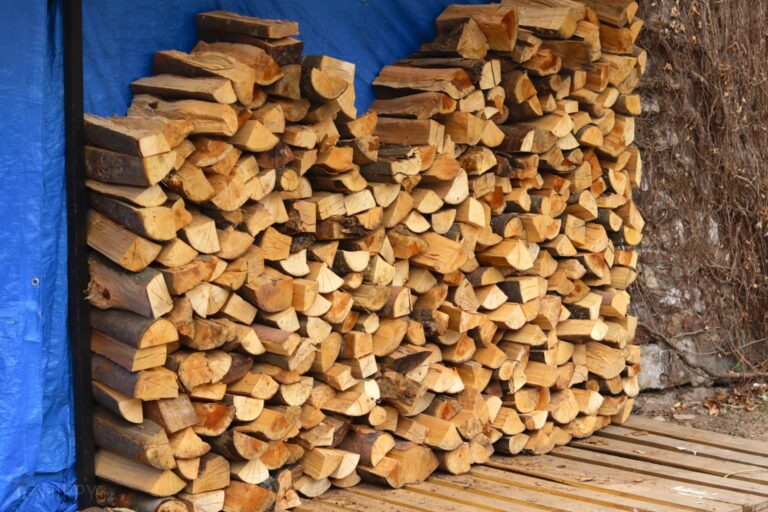
29. Large Pieces of Wood
Again, natural, untreated wood including branches, sticks, twigs and all that, are just fine for your compost pile, but you want to make sure it’s broken down into small pieces first.
If you have larger chunks of wood, say the size of firewood or even bigger, you need to spend some time breaking it down before you add it to the pile.
Those large pieces will take forever to decompose!
30. Chemicals of Any Kind
No matter what they are, never, ever add chemicals of any kind to your compost pile, or anything that has been exposed or treated by chemicals.
This could be cleaners, herbicides, pesticides, detergents, coolants, and anything else you can think of.
All will easily disrupt the microscopic biological processes and blossoming ecosystem of the pile, ruining your efforts.
31. Glossy, Inked, or Colored Paper
Once more, paper products are okay as long as they are unfinished, undyed, and aren’t glossy. Any strange additives or coatings, and glossy inks, don’t belong in your compost pile.
32. Oils and Lubricants
Oils and lubricants are bad, bad news if you want a thriving compost pile. Even natural organic oils like olive oil and other cooking oils should not be added.
They don’t break down quickly and can prevent other things from breaking down in turn. One of the worst things you can do, and a mistake that people commonly make.
33. Plastics of Any Kind
I would hope that this doesn’t need to be included on a list like this because it is something that everyone knows, but I see it happen sometimes.
Plastics do not compost, and even so-called biodegradable plastics take way too long to even begin breaking down.
Maybe science will crack the code and provide us with true compostable plastic or plastic-like material before long, but it isn’t today, at least not at a mass-market level.
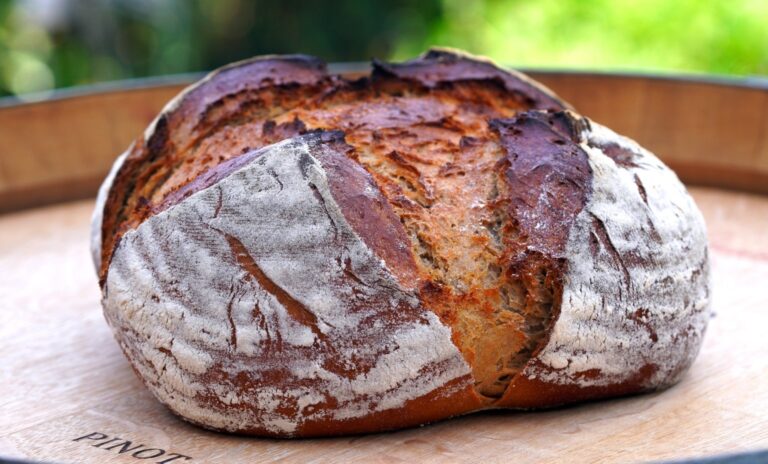
34. Bread
Bread is another contentious inclusion. You can put bread in your compost pile. I even do it myself from time to time.
But it needs to be buried very deep and added in strictly limited quantities, because nothing attracts critters as well as bread does.
You are better off avoiding it, and every time I put even a little bit of bread into my compost bin, I noticed a marked uptick in pests.
35. Pastries, Cakes, Etc.
This is a subset of bread, but one that bears a special mention because the abundant sugars in these foods routinely lead to fermentation, and are even more attractive to pests, particularly dogs and raccoons.
36. Baby Diapers
Another hygiene product that some people, somehow, believe is acceptable for a compost pile. I will simply say this: no, they are not, neither the diaper itself nor its contents.
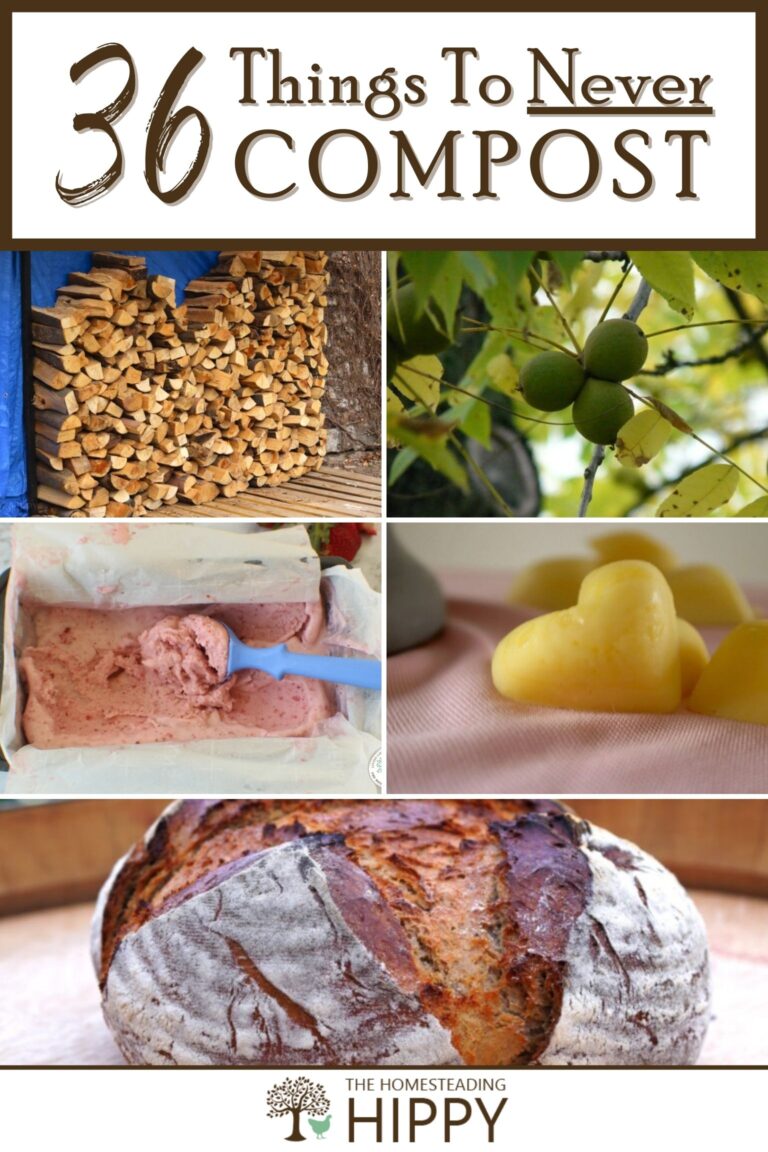
Tom has built and remodeled homes, generated his own electricity, grown his own food and more, all in quest of remaining as independent of society as possible. Now he shares his experiences and hard-earned lessons with readers around the country.
[ad_2]
Source link
Get more stuff like this
in your inbox
Don't Be Left Unprepared
Thank you for subscribing.
Something went wrong.




